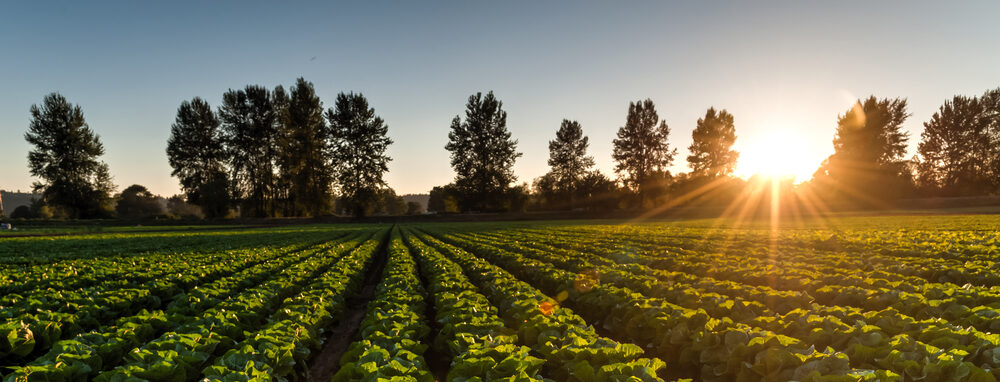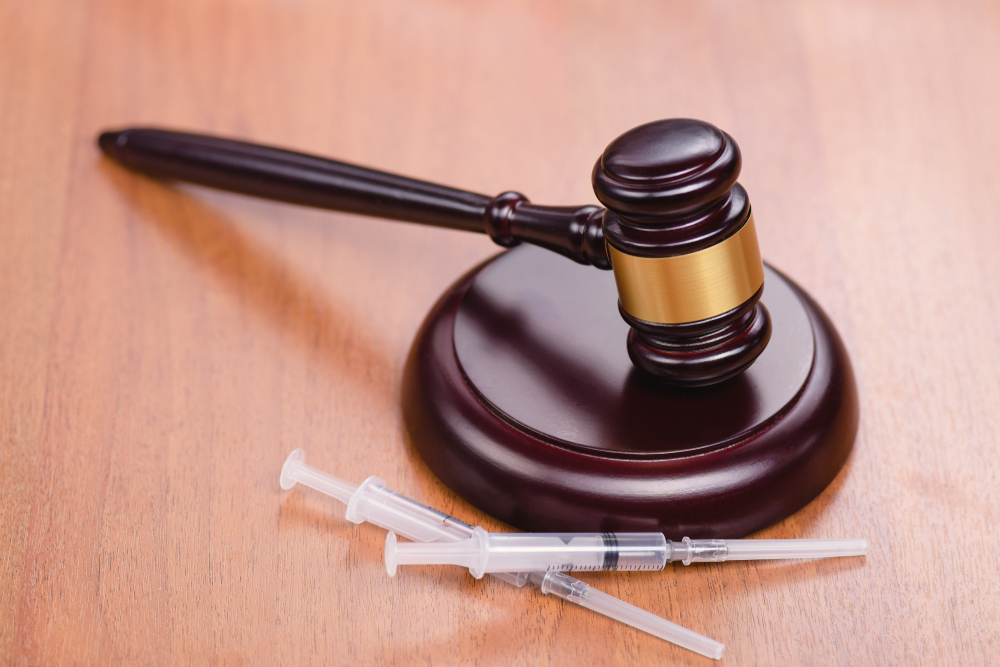About 35,900 farms in Washington are family businesses, and the state accounts for 70% of all apple production in the United States. With more than 300 crops grown in the state, Washington’s agricultural community is among the most productive and diverse.
Washington’s agricultural tradition is one reason why so many people across the state are concerned about their possible exposure to a controversial weedkiller, “Roundup.”
Across the country, more than 100,000 class-action lawsuits and other mass actions have been filed over Roundup, alleging that the best-selling herbicide in history causes non-Hodgkin lymphoma (NHL), a relatively unusual form of cancer.
Three of the 100,000-plus cases have gone to trial so far, and all three have resulted in multimillion-dollar jury verdicts in favor of the plaintiffs. Bayer, the company that now owns Roundup, has proposed as much as $12 billion in settlements for current and future cases.
What should Washington residents know about Roundup’s history, health effects, and what their legal rights may be if they used or were exposed to it and were later diagnosed with a serious health problem, such as cancer?
What Does Roundup Do?
Roundup is popular thanks to the effectiveness of its active ingredient, glyphosate. Long before it was discovered to kill plants, glyphosate was used in the commercial plumbing industry to remove buildup of calcium scale from boilers and other equipment.
But in 1974, Monsanto, the Missouri-based company that also invented saccharin and other controversial products, patented glyphosate for use as a non-selective herbicide under the brand name Roundup. Not long after it came out, Roundup became popular in agriculture, commercial landscaping, and residential lawn care.
Glyphosate’s effectiveness is believed to be a result of the way it kills plants. The non-selective herbicide interrupts the normal growth and function of plants by preventing them from producing a particular enzyme they need to live. Monsanto and its parent company, Bayer, have maintained throughout the legal controversy that because the biological process targeted by Roundup does not occur in mammals that the product, therefore, cannot hurt humans.
The effectiveness of glyphosate and Roundup is undeniable, and it has become synonymous with weedkilling in agriculture and commercial and residential landscaping. In fact, one study estimated that more than 3.5 billion pounds of the substance have been used in the U.S. since its introduction.
Glyphosate Use in Washington
While it is popular in low-volume uses like landscaping, the biggest users of glyphosate are farmers. In fact, over the past few decades, about 37 million pounds of glyphosate have been used on Washington fields and orchards, according to an analysis of estimates from the U.S. Geological Survey.
Let’s take a closer look at farming and glyphosate in Washington:
- Since 1992, nearly 37 million pounds of glyphosate have been applied to Washington farm fields. Iowa and Illinois rank first and second thanks to their corn and soybean production.
- In 2017, the most recent year with available data, Washington ranked 25th among all states with about 2.5 million pounds of glyphosate used in agriculture.
- Glyphosate is the fifth most common herbicide or pesticide in Washington agriculture.
- Pasture crops and hay accounted for more than half of the glyphosate used in Washington, fruits and vegetables accounted for about 14%, and orchard crops added another 13%.
- Washington ranks No. 1 for production of apples, blueberries, and sweet cherries. The state produces about 70% of all apples grown in the U.S.
Is Roundup Dangerous?
Glyphosate’s connection with cancer is alleged in the 100,000-plus lawsuits facing Bayer and Monsanto, but plaintiffs and their representatives are not the only people tying Roundup together with cancer.
Here is a summary of the legal, regulatory, and research connections between Roundup and cancer:
- University of Washington researchers found that exposure to glyphosate increases the risk of non-Hodgkin lymphoma by as much as 41%.
- All three lawsuits against Monsanto and Bayer that have proceeded to trial so far have resulted in verdicts in favor of the plaintiffs, who were all diagnosed with non-Hodgkin lymphoma (NHL). While awards have been slashed on appeal, basic findings in the cases have not, including that Roundup caused the victims’ cancer and that Monsanto knew of the risks of Roundup but did not reveal them to the public.
- Between 1985 and 1991, the U.S. Environmental Protection Agency (EPA) formally listed glyphosate as a possible human carcinogen. (The agency reversed its position, and as recently as 2020, reviews have concluded Roundup is not likely to cause cancer in people.)
- The World Health Organization’s cancer research agency in 2015 began listing glyphosate as a probable carcinogen.
- The California Office of Environmental Health Hazard Assessment classifies glyphosate as a probable carcinogen. Further, dozens of public entities in the state have banned or limited use.
- New York is poised to become the first state to outlaw use of glyphosate on property owned by the state, with a legislature-passed ban expected to go into effect at the end of 2021.
Roundup and Non-Hodgkin Lymphoma (NHL)
What should Washington residents know about the cancer at the heart of allegations over Roundup? Non-Hodgkin lymphoma accounts for about 4% of all cases, which makes it somewhat unusual though not exceedingly rare. The American Cancer Society estimates that about 82,000 people will be diagnosed in 2021, while about 21,000 people will die from the disease.
All three verdicts so far have involved people diagnosed with NHL, and the $12 billion total set aside for possible settlements cover this type of cancer.
While symptoms can vary by person, the biggest issues to look out for include:
- Chest pain
- Cough
- Chills
- Easy bruising
- Fatigue
- Fever
- Frequent, severe infections
- Night sweats
- Shortness of breath
- Swollen abdomen
- Swollen lymph nodes
- Weight loss
As with most forms of cancer, early detection is often key to survival. When non-Hodgkin lymphoma cases are revealed early in their progression, survival rates are quite high. About 73% of NHL patients whose cancer is discovered in the earliest stage are expected to live at least five years. Advanced cases in which cancer has spread throughout the body have a 57% five-year survival rate.
If you show any of the above symptoms and believe that you may have developed NHL as a result of exposure to Roundup, you should immediately seek medical treatment.
What Is the Current Status of Roundup Litigation?
Lawsuits over Roundup are ongoing, though the settlement offer Bayer made in the summer of 2020 is the subject of negotiations. Most observers believe the company was compelled to make a settlement offer because it lost all of the first three trials that took place among the 100,000-plus cases it was facing.
The first, the case of Dewayne “Lee” Johnson, a former California school groundskeeper, resulted in a jury award of nearly $300 million, later reduced on appeal. A later case resulted in an award to a California couple of $2 billion.
As we mentioned, all of the verdicts have had their awards slashed on appeal, but their key findings have held up, though Bayer and Monsanto are still appealing each of those California verdicts.
Bayer’s $10 million settlement offer is intended to end most of the 100,000 cases, and the company has proposed setting aside another $2 billion that would go to cases yet to be filed.
Labelling Settlement
Separately, a class-action settlement has been agreed to and approved in most states, including Washington, over allegations that misleading labeling caused people to purchase Roundup who otherwise would not have purchased it. Washington residents can receive up to $90 if they bought Roundup after Feb. 13, 2015, because of wording on the label that indicated the product could not harm people or pets because it targets a plant enzyme that’s not present in mammals.
How Much Can I Get From a Roundup Lawsuit in Washington?
All three cases Bayer has lost remain in the appeals process, and the two settlement offers the company has made to cease litigation over Roundup and non-Hodgkin lymphoma are currently being negotiated. It is too early in that process to predict when the settlements may be finalized and approved.
So, it is tough to predict how much a person could expect to make from a Roundup lawsuit in Washington. However, factors that will impact award amounts if settlements are approved are likely to range from a person’s age to how long ago they used Roundup.
Bayer’s $10 million settlement offer can provide some clues. That is because it included language about establishing a points system that would determine how much compensation each victim or survivor would receive. The average payout for that settlement, which only covers cases that have been filed so far, is expected to be about $165,000.
However, surviving family members of Roundup users who have died should receive higher amounts, particularly if the deceased person left behind a spouse or minor children.
What Should I Do if I Have Been Affected by Roundup?
Washington residents who have used Roundup should stop their use of the product, whether it is for personal, agricultural, or commercial purposes. They should consider consulting with their doctor, especially if they have been experiencing any of the symptoms outlined above.
For those who used Roundup and have already been diagnosed with non-Hodgkin lymphoma or any other major illness, there is still time to seek compensation for the damage you have suffered. To ensure you get what you’re entitled to, consider meeting with an expert Roundup class-action attorney in Washington. We can help connect you with a reputable firm in your area.
In most cases, you will not be expected to pay legal fees unless your case is successful, and most firms offer initial consultations free of charge.





